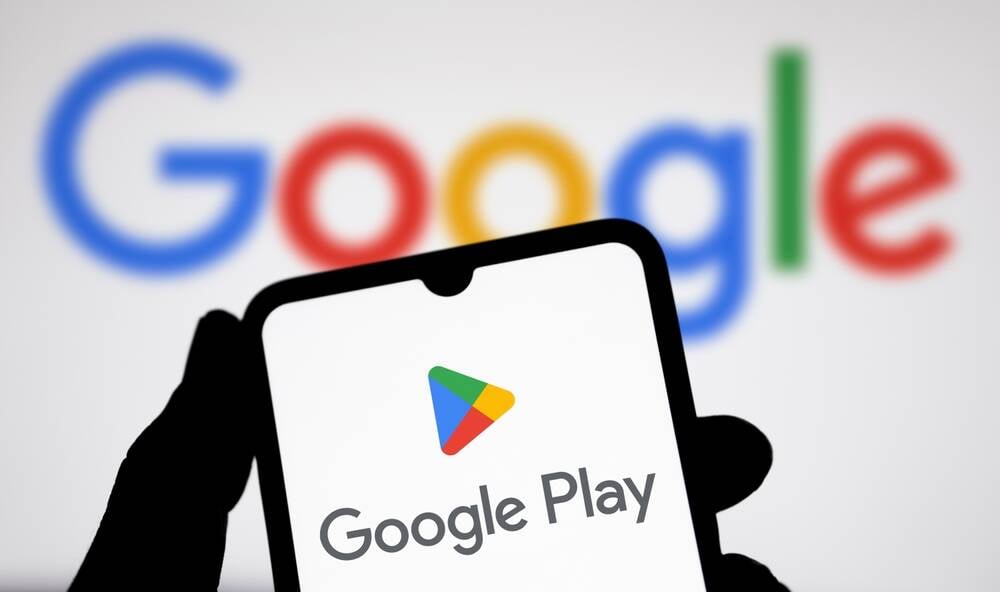Epic Judge Orders Google To Let Rivals Set Up App Stores

A US court has ordered Google to refrain from a wide variety of business practices the web giant uses to bolster its Play Store, as a consequence of its December 2023 antitrust defeat against Epic Games.
In that case, Epic argued that Google's Play Store rules and contractual agreements with developers and partners violated the federal Sherman Act and California's Unfair Competition Law (UCL). And the jury agreed.
On Monday, US District Court judge James Donato issued a permanent injunction [PDF] that forbids Google from eight behaviors deemed unlawful as a result of the case.
"The jury found that Google's conduct violated the antitrust laws and substantially harmed competition in the relevant markets, and directly injured Epic," judge Donato wrote, explaining the injunction. "The jury rejected Google’s proffered procompetitive justifications for its conduct. Consequently, the Court concludes that Epic has prevailed on the UCL claim against Google under the unlawful and unfair prongs."
Noting that Google had "fired a blunderbuss of comments and complaints that are underdeveloped and consequently unhelpful in deciding the issues," judge Donato put an end to the extensive input afforded to both sides about the specifics of the injunction that follows from the verdict.
Google, in a blog post, unsurprisingly disagreed – it is appealing the verdict and will ask the courts to pause the injunction until its appeal is heard.
"These Epic-requested changes stem from a decision that is completely contrary to another court's rejection of similar claims Epic made against Apple – even though, unlike iOS, Android is an open platform that has always allowed for choice and flexibility like multiple app stores and sideloading," wrote Lee-Anne Mulholland, VP of regulatory affairs at Google.
Mulholland argues that the court-ordered changes would hinder Google's – and the wider Android ecosystem's – ability to compete with Apple's ecosystem.
- If Dell's Qualcomm-powered Copilot+ PC is typical of the genre, other PCs are toast
- Office 2024 unveiled for Microsoft 365 refuseniks
- Cops love facial recognition, and withholding info on its use from the courts
- Samsung chairman debunks foundry, chip biz spinoff rumors
The injunction is set to take effect starting November 1, 2024, only in the US, for a period of three years. During this time:
- Google may not share revenue generated by the Google Play Store with any person or entity that distributes Android apps, or has stated that it will launch or is considering launching an Android app distribution platform or store.
- Google may not condition a payment, revenue share, or access to any Google product or service …
- on an agreement by an app developer to launch an app first or exclusively in the Google Play Store;
- on an agreement by an app developer not to launch on a third-party Android app distribution platform or store a version of an app that includes features not available in, or is otherwise different from, the version of the app offered on the Google Play Store;
- on an agreement with an original equipment manufacturer (OEM) or carrier …
- to preinstall the Google Play Store on any specific location on an Android device;
- not to preinstall an Android app distribution platform or store other than the Google Play Store.
- Google may not …
- require the use of Google Play Billing in apps distributed on the Google Play Store, or prohibit the use of in-app payment methods other than Google Play Billing;
- prohibit a developer from communicating with users about the availability of a payment method other than Google Play Billing;
- require a developer to set a price based on whether Google Play Billing is used;
- prohibit a developer from …
- communicating with users about the availability or pricing of an app outside the Google Play Store;
- providing a link to download the app outside the Google Play Store.
- Google will permit third-party Android app stores to access the Google Play Store's catalog of apps so that they may offer the Play Store apps to users. [Along with other distribution fairness requirements, Google has eight-months to implement this, at which point the three-year clock will begin for this provision.]
- Google may not prohibit the distribution of third-party Android app distribution platforms or stores through the Google Play Store.
The injunction also gives Epic and Google a 30-day deadline to form a three-person Technical Committee, comprising one representative from each party and a mutually agreed upon third member, to resolve disputes over the implementation of the injunction's provisions.
Epic Games did not immediately respond to a request for comment. ®
From Chip War To Cloud War: The Next Frontier In Global Tech Competition
The global chip war, characterized by intense competition among nations and corporations for supremacy in semiconductor ... Read more
The High Stakes Of Tech Regulation: Security Risks And Market Dynamics
The influence of tech giants in the global economy continues to grow, raising crucial questions about how to balance sec... Read more
The Tyranny Of Instagram Interiors: Why It's Time To Break Free From Algorithm-Driven Aesthetics
Instagram has become a dominant force in shaping interior design trends, offering a seemingly endless stream of inspirat... Read more
The Data Crunch In AI: Strategies For Sustainability
Exploring solutions to the imminent exhaustion of internet data for AI training.As the artificial intelligence (AI) indu... Read more
Google Abandons Four-Year Effort To Remove Cookies From Chrome Browser
After four years of dedicated effort, Google has decided to abandon its plan to remove third-party cookies from its Chro... Read more
LinkedIn Embraces AI And Gamification To Drive User Engagement And Revenue
In an effort to tackle slowing revenue growth and enhance user engagement, LinkedIn is turning to artificial intelligenc... Read more

